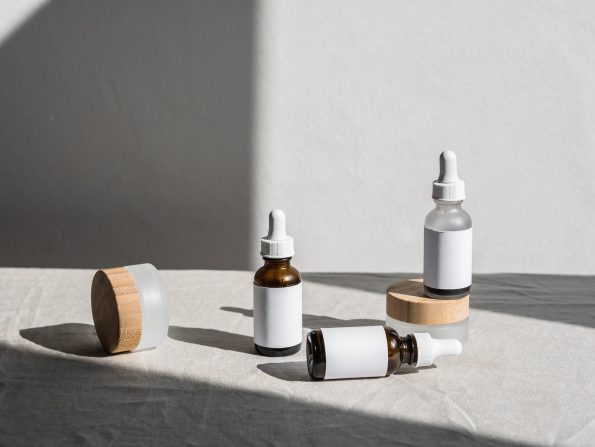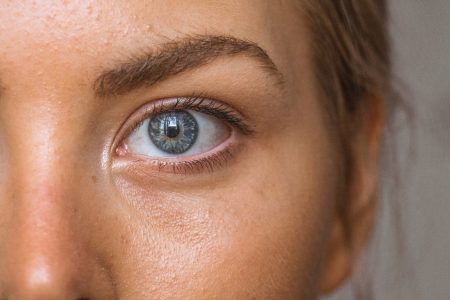As we age, our skin loses collagen, which can lead to wrinkles, sagging skin, and a dull complexion. That’s why maintaining collagen levels is an essential part of any anti-aging routine. Join us as we explore the benefits of collagen supplements for anti-aging and answer common questions about when to start taking collagen, which type is best, and whether it’s worth the investment.
Does Collagen Help Anti-Aging?
Collagen is a vital protein that helps keep our skin plump, firm, and youthful-looking. As we age, our body’s natural collagen production slows down, which can lead to visible signs of aging such as wrinkles, fine lines, and sagging skin. Supplementing with collagen has been shown to help reduce these signs of aging, as well as improve skin hydration, elasticity, and overall texture.
Scientific studies have also demonstrated the benefits of collagen for anti-aging. For example, one study found that women who took a collagen supplement for eight weeks saw significant improvements in skin hydration and elasticity, as well as a reduction in wrinkles and roughness. Another study found that collagen supplementation helped increase skin firmness and improve skin texture in older adults.
While collagen supplements can offer many benefits for anti-aging, it’s important to note that they are not a magical solution. Some people may not see significant results and there can be potential drawbacks or limitations to using collagen supplements. For example, collagen supplements derived from animal sources may not be suitable for vegetarians or those with certain dietary restrictions. Additionally, some people may experience mild side effects such as digestive discomfort or allergic reactions.

Which Collagen Supplement Is Best For Anti-Aging?
There are several types of collagen supplements available, including collagen peptides, hydrolyzed collagen, and marine collagen. Each type has its own unique benefits and potential side effects, so it’s important to choose the right one for your needs.
Collagen peptides are the most popular type of collagen supplement and are known for their high bioavailability, which means they are easily absorbed by the body. Hydrolyzed collagen is also highly bioavailable and is often used in topical creams and serums as well as oral supplements. Marine collagen is derived from fish and has been shown to have a higher concentration of type I collagen, which is important for skin health. These types are essential when it comes to collagen for women.
While each type of collagen supplement has its own advantages, experts generally recommend collagen peptides for anti-aging purposes. This is because they have been extensively researched and have been shown to have a positive effect on skin health and anti-aging. However, it’s important to choose a high-quality supplement from a reputable brand, as not all collagen supplements are created equal.
What Is The Best Age To Take Collagen?
As discussed above when we get older, our bodies naturally start to lose collagen, which can lead to wrinkles, sagging skin, and joint pain. So when is the best time to start taking collagen supplements to combat these effects?
Experts generally recommend starting collagen supplementation in your mid-20s to early 30s, when collagen production begins to decline. By taking collagen at this age, you can help slow the loss of collagen and maintain healthy levels in the body.
That being said, it’s never too late to start taking collagen supplements. Even if you’re in your 50s or 60s, supplementing with collagen can still provide benefits such as improved skin elasticity and joint health.
Is It Worth Taking Collagen?
Collagen supplements have gained popularity in recent years as a potential anti-aging treatment, but are they worth the investment?
While scientific research on the effectiveness of collagen supplements is still limited, some studies have shown promising results. Collagen supplements have been shown to improve skin hydration and elasticity, reduce wrinkles, and even increase bone density in some cases.
However, it’s important to remember that collagen supplements are just one piece of the puzzle when it comes to anti-aging. They should be used in conjunction with a healthy diet, exercise, and other skincare practices to achieve optimal results.
Additionally, collagen supplements can be expensive, with prices ranging from $20 to $50 per month. While some people may find the investment worth it for the potential benefits, others may choose to focus on more affordable anti-aging treatments such as retinoids or antioxidants.
While collagen supplements may have potential anti-aging benefits, their effectiveness and worthiness of investment may vary from person to person. It’s important to do your own research and consult with a healthcare professional before deciding to take collagen supplements for anti-aging purposes.

Can I Rebuild Collagen In My Face?
We know that the natural production of collagen as we age in our bodies begins to decrease, which can lead to visible signs of aging such as wrinkles and sagging skin. There are ways to increase collagen production in the face for anti-aging purposes.
It’s important to understand the fundamental principle that collagen is naturally produced and maintained in the body through a process that involves the breakdown of old collagen fibers and the synthesis of new ones. Certain lifestyle choices, such as smoking and sun exposure, can accelerate the breakdown of collagen, leading to premature signs of aging.
To increase collagen production in the face, there are several methods that have been shown to be effective. One such method is through the use of topical treatments that contain collagen-boosting ingredients, such as peptides and vitamin C. These ingredients can stimulate collagen synthesis and help improve skin elasticity.
Taking collagen supplements may help rebuild collagen in your face. Collagen is a protein that naturally occurs in the body and provides structure and elasticity to the skin. As we age, the body produces less collagen, leading to fine lines, wrinkles, and sagging skin. Collagen supplements contain amino acids that are important building blocks for collagen production in the body. By taking collagen supplements, you may be able to increase the levels of collagen in your skin, leading to improved skin elasticity and a more youthful appearance.
In addition to these methods, a healthy lifestyle that includes a balanced diet and regular exercise can also help maintain collagen levels in the body and improve overall skin health.
Ultimately, the most effective way to rebuild collagen in the face will depend on the individual’s specific needs and goals. Consulting with a dermatologist or skincare specialist can help determine the best course of action for achieving desired anti-aging results.
Is Collagen Or Retinol Better For Wrinkles?
Aging causes wrinkles and fine lines on the skin. As collagen and elastin production slows, skin loses its elasticity and firmness. Collagen and retinol are two popular ingredients that are often found in anti-aging products, including supplements, creams, and serums. But which one is better for treating wrinkles?
Collagen is a protein that is naturally produced in the body and is responsible for providing structure and support to the skin. Collagen supplements are derived from animal sources and can help to increase collagen levels in the body. Retinol is a vitamin A derivative that is often used in anti-aging products due to its ability to increase cell turnover and stimulate collagen production. Retinol can help to improve the appearance of fine lines and wrinkles, as well as improve skin texture and tone.
While collagen supplements can help to improve overall skin health, retinol is the better choice for treating wrinkles. Retinol has been shown to be effective in reducing the appearance of fine lines and wrinkles, as well as improving skin texture and tone. It is also a more well-researched and established ingredient for anti-aging purposes.
However, it is important to note that retinol can cause irritation and sensitivity in some people, and should be used with caution. It is always recommended to consult with a healthcare provider or dermatologist before starting any new skincare regimen or using any new products.
Science Suggests There Is An Anti-Aging Solution
Maintaining collagen levels is crucial for healthy, youthful-looking skin, and collagen supplements can be a valuable tool in the fight against aging. Scientific research has shown that collagen supplements can improve skin elasticity, hydration, and reduce the appearance of fine lines and wrinkles. However, it’s important to note that collagen supplements are not a magic solution, and their effectiveness may vary from person to person.
It’s always recommended to consult with a healthcare provider before starting any new supplement regimen, to determine if it is right for you and to discuss any potential risks or interactions with other medications. Remember, taking care of your skin is a holistic process, and combining healthy habits like a balanced diet, exercise, and a good skincare routine can also contribute to maintaining healthy skin and reducing the effects of aging.











